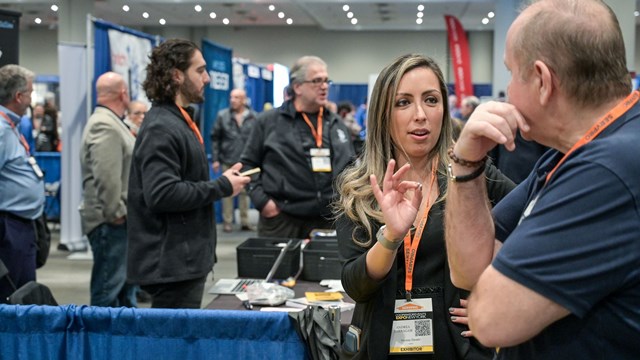Legendary funny man Benny Goodman once said, “I don’t want to tell you how much insurance I carry with the Prudential, but all I can say is: when I go, they go too!” The comedian hits on all-important issue: how much insurance is too much, and how much is not enough?
While individual residents of a multifamily association in Florida are encouraged to carry adequate coverage in case of a severe accident or catastrophe, condominium and homeowner association boards have a stake in their residents carrying adequate insurance as well.
Cover Yourself
“In order to determine whether an owner/shareholder has adequate coverage for their possessions, all owners/shareholders should obtain a copy of the master insurance policy of the association to determine what property is covered under such policy,” says Michael Bender, an attorney and partner with the law firm of Kaye Bender Rembaum in Pompano Beach. He adds that an owner can make a written request to the association to inspect the “official records,” which must include a copy of all insurance policies of the association.
While some condominium associations offer all-in coverage in their master policy, the vast majority require unit owners to carry HO-6 or 'dwelling coverage' as well. According to insurance industry website,www.InsureOurCondo.com, these insurance policies usually cover things like accidental discharge or overflow of water from your plumbing, fire and lightning, explosions, theft, vandalism and malicious mischief, sudden accidental damage from smoke, and so forth.
“We feel that many co-op and condo owners are underinsured,” says Connor Lynch, chief operating officer for Plastridge Insurance Agency in Delray Beach. “Co-ops are insured very differently and are not subject to Florida Statute 718. For a Florida condo, it is best to make a list as the starting point, estimate a value for each item, and then total these areas. Then you can set a total value to replace all items.” Generally speaking, 1,000 square feet works out to around $40,000 in personal property insurance.
Decoding Insurance Policies
For board members, who also likely carry dwelling insurance, it is important they understand what exactly is covered by the association opposed to personal risk. Less an all-in coverage clause, common insurance coverage normally applies to common areas, the exterior of the building and energy equipment.
Russell Robbins, an attorney and partner at the law firm of Mirza Basulto & Robbins LLP, with offices in Miami Lakes and Coral Springs, explains the importance of both board members and unit owners understanding policies that are offered. “The two largest misconceptions that I encounter are about the scope of [damages] that the unit owner believes that the association’s insurance policy covers such as risk to the interior of the unit, and the cost to the unit owner, or how the deductible is shared equally among all unit owners in the event of a casualty loss.”
Robbins adds that the amount of the deductible is the purview of the board of directors who determine what is reasonable for the community. Additionally, the association can minimize risk by establishing an insurance deductible reserve, which can maintain sufficient funds to cover the association’s insurance risk in the event of a loss. “Well-run associations have less need to assess for shortfalls in their budgets due to unexpected expenses,” says Robbins. “Unit owners don't realize that while the association’s insurance policy covers certain casualty loss, it does not cover losses due to the unit owners’ negligence such as being absent from the property for over six months at a time without a caretaker looking after the unit on a weekly or monthly basis.”
Lynch explains that board members and managers should look to Florida Statute 718, (the Sunshine State’s condominium act) which states in no uncertain terms that the interior of a unit and personal items contained therein are not covered by the association. “Many people take for granted that kitchens are often a minimum of $20,000 to $30,000 to replace, and bathrooms can start at $15,000,” he says. “We see many unit owners with $25,000 or less for their entire unit, and it is often difficult to convince them of the need to carry more coverage.”
Aside from property coverage, industry experts recommend that unit owners carry liability insurance in the event a person is sued due to an accident such as tripping in a unit; mold coverage which is usually carried on a limited basis by the association but is rather inexpensive for unit owners; and loan assessment insurance. “The latter covers a unit owner if the association does an assessment for damage that would be covered by insurance but either exceeded their coverage, to cover the deductible, or if assessed because it did not exceed the deductible,” says Lynch. “It is important to point out that townhome associations are very unique. They can be insured similarly to a home or similarly to a condominium building. This is typically determined by how the association was set up and the bylaws.”
Insurance Not Required?
While board and management agencies used to have the right to know the insurance status of each individual unit owner in the community, the provisions of the condo act, have recently changed. “Condominiums are no longer required to request that unit owners provide evidence of the casualty (HO-6) policy; well-run associations require such evidence and calendar the expiration dates of the policies,” says Robbins. “Furthermore, condominium associations are no longer authorized to force place the purchase of the policy of insurance on behalf of the unit owner.”
To ensure there are no gray areas or errors in interpretation, Bender offers the following verbiage from the significantly-revised Chapter 718 of the Florida Statute: “Section 718.111(11)(f)(3) F.S. provides that the unit owners are responsible to insure a) all personal property within a unit or limited common elements; b) floor/wall/ceiling coverings of a unit; c) electrical fixtures and appliances; d) water heaters and filters; e) built-in cabinets and counter-tops; and f) all window treatments, including curtains, drapes, blinds, and similar window treatment components.” He adds that these exclusions also apply to any replacements of the foregoing items.
“Unless the governing documents of the association contain specific language obligating the owner to obtain an insurance policy to insure the above-listed items, the board of directors does not have the legal authority to require unit owners to obtain HO-6 insurance coverage for their units,” says Bender. “As such, while the board may inquire of unit owners as to whether they have coverage, whether an owner chooses to reply as requested will be purely voluntary without a provision in the governing documents mandating unit owner coverage on all units.”
Since unit owners are not legally required to carry insurance, unless directed by the board, problems can arise, especially when it comes to lenders. “The percentage of owners in a condominium that carry insurance does not influence or affect a lender’s ability to offer mortgage financing to a prospective purchaser of a unit in the building. However, lenders may have their own specific insurance requirements that prospective purchasers seeking to obtain mortgage financing would have to fulfill in order to qualify for a mortgage loan,” says Bender. “Fannie Mae and Freddie Mac are two examples of institutions that require condo buyers to obtain an insurance policy, covering the interior of the specific unit.”
Get Covered
If an association is properly insured, they will be ready anytime a claim ensues. The real problems almost always arise after an event occurred and it then becomes a guessing game as to what coverage is held by unit owners. Despite conventional knowledge, Robbins says most unit owners do not have adequate insurance coverage for their possessions and/or property. “The association maintains the hazard and flood insurance policies, and pursuant to Florida Statutes should obtain an insurance appraisal once every thirty-six months,” he says.
W.B. King is a freelance writer and a frequent contributor to The South Florida Cooperator.





Leave a Comment